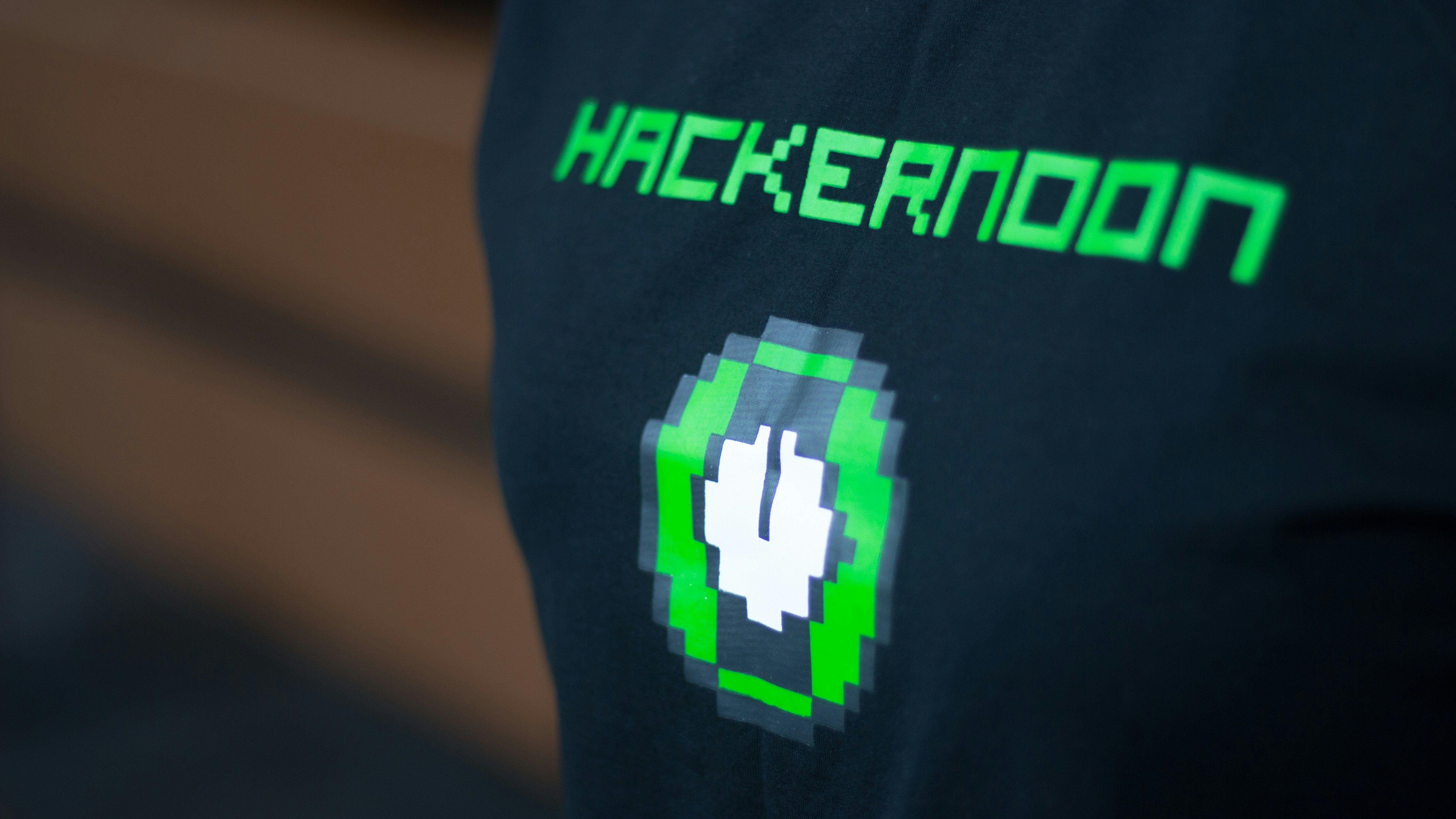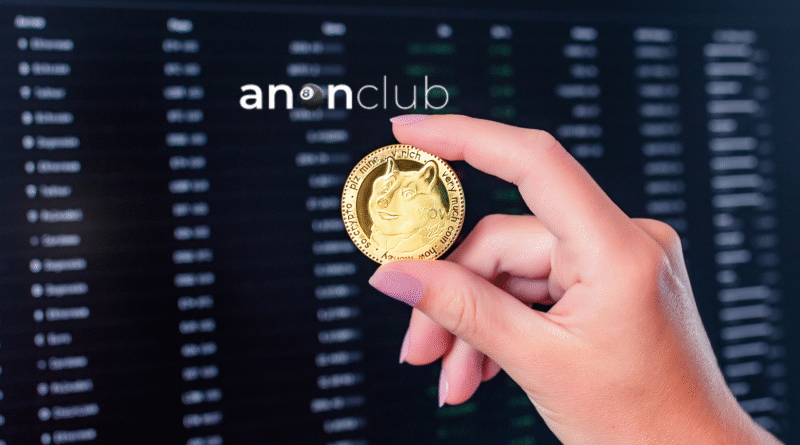The Launch of Anon Token: A New Era for Legal Defense and Hacktivism

Introduction to Anon Token
The Anon Token represents a groundbreaking innovation in the cryptocurrency space, specifically aimed at providing financial backing for legal defense endeavors. Its primary purpose is to support individuals involved in hacktivism, a form of activism that leverages technology and hacking to promote political or social change. As digital rights increasingly come under threat, there is a pressing need for financial mechanisms that can assist those facing legal challenges due to their activism. The Anon Token addresses this need by creating a dedicated fund, allowing supporters to contribute to the legal defense of those fighting for transparency, free speech, and human rights.
In recent years, the use of cryptocurrencies has surged, revealing their potential not just as commodities but also as tools for advocacy and community support. Many advocacy groups have turned to decentralized financial models to facilitate fundraising efforts, allowing donations to be made swiftly and anonymously. Anon Token builds upon this trend, aiming to harness the power of blockchain technology to create a transparent and efficient means of raising funds for legal cases, particularly those pertaining to hacktivism.
The uniqueness of Anon Token lies in its clear mission to bridge the gap between technology and legal defense. Unlike traditional fundraising methods, the Anon Token facilitates direct contributions to legal defense funds, ensuring that resources are allocated where they are most needed. As individuals face mounting legal pressures for their online activism, the introduction of Anon Token may be a pivotal moment in enhancing the resilience of the hacktivist community and protecting the rights of those who advocate for social justice in the digital age.
Meet Aubrey Cottle: The Mind Behind Anon Token
Aubrey Cottle, a prominent figure in the hacktivist community, has shaped the landscape of digital activism with his unique blend of technological expertise and social advocacy. His journey began in the early days of the internet when he was captivated by the potential for technology to drive social change. Cottle’s early experiences as a hacker-activist laid the groundwork for his later work in legal defense and digital rights. As part of various collaborative efforts, he played a crucial role in numerous campaigns that sought to reveal corporate malpractice and governmental overreach.
The motivation behind Cottle’s launch of the Anon Token stems from a profound understanding of the challenges faced by activists navigating the legal system. Having witnessed firsthand the ramifications of political repression and legal battles, he recognized the need for an innovative approach to funding legal defenses. Cottle envisioned the Anon Token as a decentralized solution that empowers individuals and groups defending their rights while also enabling collective support for those who may be at risk due to their activism.
Cottle’s experiences have allowed him to cultivate a distinctive perspective on both hacktivism and the legal complexities that often accompany it. He has often emphasized the importance of anonymity in protecting activists from persecution. His past projects, which have included the development of tools for secure communication and privacy-enhancing technologies, highlight his commitment to these ideals. Through these initiatives, Cottle has become a respected leader in the digital rights community, advocating for the principles of transparency, accountability, and the protection of civil liberties.
In creating the Anon Token, Aubrey Cottle aims to harness blockchain technology to foster an ecosystem where activists can receive support and funding without compromising their safety. As the digital landscape continues to evolve, Cottle remains at the forefront, driving efforts that bridge the gap between technology and activism.
The Technical Framework of Anon Token on Solana
The Anon Token operates on the Solana blockchain, a platform recognized for its high throughput and low latency. Solana leverages a unique architecture that supports a significantly higher number of transactions per second compared to many other blockchain networks. This technical framework is essential for the Anon Token as it aims to provide a seamless and efficient user experience, particularly important for legal defense and hacktivism purposes where time-sensitive transactions can be critical.
One of the standout features of Solana is its ability to achieve scalability without compromising decentralization. The network uses a consensus mechanism known as Proof of History (PoH), which timestamps transactions to ensure their order, enabling validators to verify multiple transactions simultaneously. This innovation facilitates the rapid confirmation of transactions and allows the Anon Token to maintain high levels of performance even during peak usage times.
In addition to speed, the Solana blockchain offers significantly lower transaction fees compared to other platforms. This cost-effective model is particularly appealing for users of the Anon Token, as it reduces the financial barrier for participating in legal defenses and hacktivist activities. With the ability to perform thousands of transactions for just a few cents, the token encourages broader participation and engagement among its audience.
Furthermore, the Anon Token is designed to function seamlessly within the wider Solana ecosystem, which includes various decentralized applications (dApps) and services. This integration enhances its utility, allowing users to utilize their tokens across a wide range of platforms, thereby amplifying their effectiveness in legal defense initiatives and hacktivism. Overall, the technical framework provided by Solana positions the Anon Token as a powerful and efficient tool for its intended use cases.
Funding Legal Defense: The Motivation Behind Anon Token
The rise of digital activism and hacktivism has highlighted a pressing need for financial support in legal defenses. Individuals involved in hacktivist activities often face significant legal challenges, resulting in exorbitant legal fees. These challenges can deter individuals from speaking out or engaging in activism due to the fear of expensive litigation. The Anon token emerges as a vital solution to this dilemma, offering a decentralized funding mechanism tailored specifically for hacktivists.
Many hacktivists operate with the intent of promoting transparency, challenging injustices, and advocating for civil liberties. However, engaging in such activities frequently leads to encounters with law enforcement and the judicial system. This often results in mounting legal expenses that can act as a considerable barrier for those who choose to fight for their beliefs. With traditional funding routes unavailable or fraught with limitations, the need for a more supportive financial structure is evident. The Anon token aims to bridge this gap, providing the necessary resources to empower individuals within the hacktivist community without imposing the typical constraints of conventional funding sources.
The decentralized model of Anon token allows supporters from around the globe to contribute to legal defense funds without being tied to centralized institutions. This fosters a community-driven approach to funding, ensuring that hacktivists receive the support they need. Furthermore, the transparency inherent in blockchain technology ensures that donations are allocated effectively, giving contributors confidence in their financial contributions. This innovative approach not only showcases the potential of the token but also reflects a commitment to the principles of collective support and resource sharing within the hacktivist movement.
The Broader Impact on Hacktivism and Activism
The advent of the Anon token heralds significant changes in the landscape of hacktivism and activism. At its core, the token represents a sophisticated financial mechanism that empowers individuals and collectives engaged in the pursuit of digital rights, privacy, and social justice. As hacktivism continues to evolve in the face of increasing state and corporate surveillance, the Anon token provides activists with a means to fund their initiatives securely and anonymously. This creates a formidable avenue for the protection of privacy and the enhancement of digital civil liberties.
Moreover, the Anon token embodies a decentralized approach that resonates with the very ethos of hacktivism — challenging authority and advocating for social reform. By enabling funding without the constraints traditionally associated with fiat currencies, activists can operate independently of corporate and governmental influence. This separation from mainstream financial systems aids in maintaining both the integrity of their operations and the focus on their objectives, whether they involve whistleblowing, promoting transparency, or combating censorship.
The implications of the Anon token extend beyond mere financial transactions; it fosters a collaborative environment where hacktivists can share resources, information, and strategies more efficiently. This connectivity is invaluable in the digital age, where rapid response to emerging threats requires an agile and well-resourced community. As activists leverage this token to amplify their voices, they not only broaden their reach but also cultivate a culture of mutual support, leading to potentially more impactful actions for social change.
In conclusion, the introduction of the Anon token is poised to transform hacktivism and activism in a profound manner. By providing a secure and decentralized means of funding, it empowers individuals and groups to advocate for essential rights in an increasingly digital society, paving the way for a new era of activism that is both resilient and innovative.
Community Involvement and Support for Anon Token
The recent launch of Anon Token presents a unique opportunity for individuals within the cryptocurrency community to engage and actively support the quest for legal defense and hacktivism. One of the primary ways to participate is through the purchase of Anon Tokens. By investing in these tokens, community members not only gain potential financial benefits but also contribute to a broader mission dedicated to ensuring digital rights and supporting legal battles against oppressive measures. Each purchase acts as a vote of confidence in the project’s vision, helping to signal community support for hacktivism and legal advocacy.
Additionally, spreading awareness about Anon Token is crucial in building a strong community presence. Engaging with various social media platforms and sharing informative content about the token’s purpose can greatly enhance its visibility. This could include writing blog posts, creating video content, or participating in discussions about the importance of hacktivism and digital rights. Community members are encouraged to join relevant online forums and groups where like-minded individuals gather to discuss issues surrounding cybersecurity, legal challenges, and the implications of digital privacy. Being an active participant in these forums amplifies opportunity for collective learning and fosters a sense of camaraderie within the community.
Moreover, community involvement in Anon Token can extend to collaborations with existing organizations that advocate for digital freedoms. Partnering with hacktivist movements or legal defense teams allows community members to leverage combined resources and networks. This collaboration not only benefits Anon Token but also enriches the overall fight for digital rights. Through these various avenues of engagement, the cryptocurrency community can play a pivotal role in sustaining and promoting the Anon Token’s initiatives, ultimately contributing to a stronger and more resilient movement for legal defense and hacktivism.
Comparative Analysis: Other Cryptocurrencies for Legal Defense
The emergence of cryptocurrencies has significantly influenced various sectors, including legal defense initiatives. Notable examples include Bitcoin (BTC) and Ethereum (ETH), which have been employed within hacktivist circles to raise funds for legal battles against government actions. In the realm of funding legal defenses, both cryptocurrencies have showcased distinct advantages and challenges. For instance, Bitcoin’s decentralization and wide acceptance have made it a popular choice for individuals seeking to contribute anonymously to legal funds. However, its volatility has raised concerns regarding the sufficiency of funds needed for ongoing legal proceedings.
Another cryptocurrency often utilized for legal defense purposes is Monero (XMR). Monero prioritizes privacy, allowing contributors to remain anonymous, which has found favor among hacktivists needing to protect their identities. Its use in legal funding has been notable, particularly in cases where the contributors wish to avoid scrutiny. However, Monero’s lesser adoption rate compared to Bitcoin potentially limits the scale and speed of contributions, presenting a significant challenge for those seeking immediate funding for legal causes.
In contrast, projects like Civic (CVC) have proposed innovative models that combine decentralized finance with legal defense. Civic focuses on identity verification while enabling users to maintain control over their personal information. This could theoretically empower individuals facing legal hardships with trustworthy funding sources. Nevertheless, Civic’s market penetration and relevance in high-stakes legal scenarios are still under assessment.
In this landscape, the launch of Anon Token introduces a unique proposition. Designed specifically for legal defense, it aims to address the learning curve exhibited by other cryptocurrencies. Anon Token’s framework fosters a collaborative ecosystem for funding legal initiatives within hacktivist communities while balancing anonymity and accessibility. By leveraging insights from the successes and failures of its predecessors, Anon Token is positioned to fill the gaps identified in existing models, promising a more efficient and secure means of raising funds for legal defenses.
Challenges Ahead: Legal and Ethical Considerations
The launch of the Anon Token represents a significant juncture in the intersection of technology and legal advocacy, particularly in the realm of hacktivism. However, several legal and ethical challenges are expected to arise as the community begins to engage with this innovative digital asset. One of the foremost concerns is regulatory scrutiny. Governments worldwide are increasingly attentive to cryptocurrency movements, seeking to ensure compliance with existing laws while simultaneously placing restrictions on financial transactions that may facilitate illicit activity. The use of the Anon Token in protecting or funding hacktivist activities could attract particular investigation, raising questions about the token’s implications for both legal and illegal online actions.
Moreover, the legal ramifications for users of the Anon Token present another vital consideration. Participants, including developers and users, might unknowingly breach local or international laws when engaging in or supporting hacktivist causes, leading to severe consequences. These consequences could range from fines to criminal charges, particularly in jurisdictions with stringent laws against unauthorized access to computer systems or data breaches. As the Anon Token aims to empower users, it must also consider the potential legal liabilities individuals could incur, provoking a necessary discourse on how best to protect users while fostering an ethos of advocacy and activism.
In addition to these regulatory and legal obstacles, broader debates surrounding the legitimacy of hacktivism will also influence the token’s acceptance. Critics often view hacktivist actions as digitally-based vandalism or illegitimate protest, which could lead to societal pushback against the Anon Token. Navigating this complex landscape will require ongoing dialogue and education within the community to articulate the ethical motivations behind hacktivism and align them with legal frameworks, ensuring the movement’s resilience against opposition and legal challenges.
Conclusion: The Future of Anon Token and Hacktivism
The launch of the Anon token marks a pivotal moment in the intersection of cryptocurrency, legal defense, and hacktivism. As a novel approach to fostering individual rights and promoting digital activism, this token embodies the aspirations of a generation advocating for personal freedom in an increasingly surveilled and regulated online environment. The Anon token aims not only to facilitate secure transactions but also to empower individuals who stand up for social justice, privacy, and transparency.
In a world where traditional legal frameworks often struggle to adapt to the challenges posed by digital technologies, the Anon token represents a proactive solution. It aligns with the principles of decentralized networks, where the power is derived from the community rather than centralized authorities. This makes it an attractive option for those engaged in hacktivist activities, providing both financial support and the ability to rally collective resources in defense of personal liberties.
Furthermore, the Anon token is set to redefine traditional paradigms of activism. By leveraging blockchain technology, it ensures that financial contributions towards legal defense campaigns and other initiatives are transparent and traceable, which can potentially deter illicit practices and ensure accountability. As hacktivism continues to evolve, the Anon token could serve as a cornerstone for building resilient networks of support that transcend geographical and political barriers.
Looking ahead, the relationship between cryptocurrency and activism appears to be symbiotic. As the Anon token gains traction, it will likely inspire innovative projects that underpin the fight for individual rights. The integration of decentralized technologies into hacktivism is not merely a trend but a fundamental shift towards securing a more liberated digital future. In summary, the Anon token is more than just a financial instrument; it is a beacon for change in an era where legal protection and digital freedom are paramount.
Keep Reading:




